Men at some time are masters of their fates
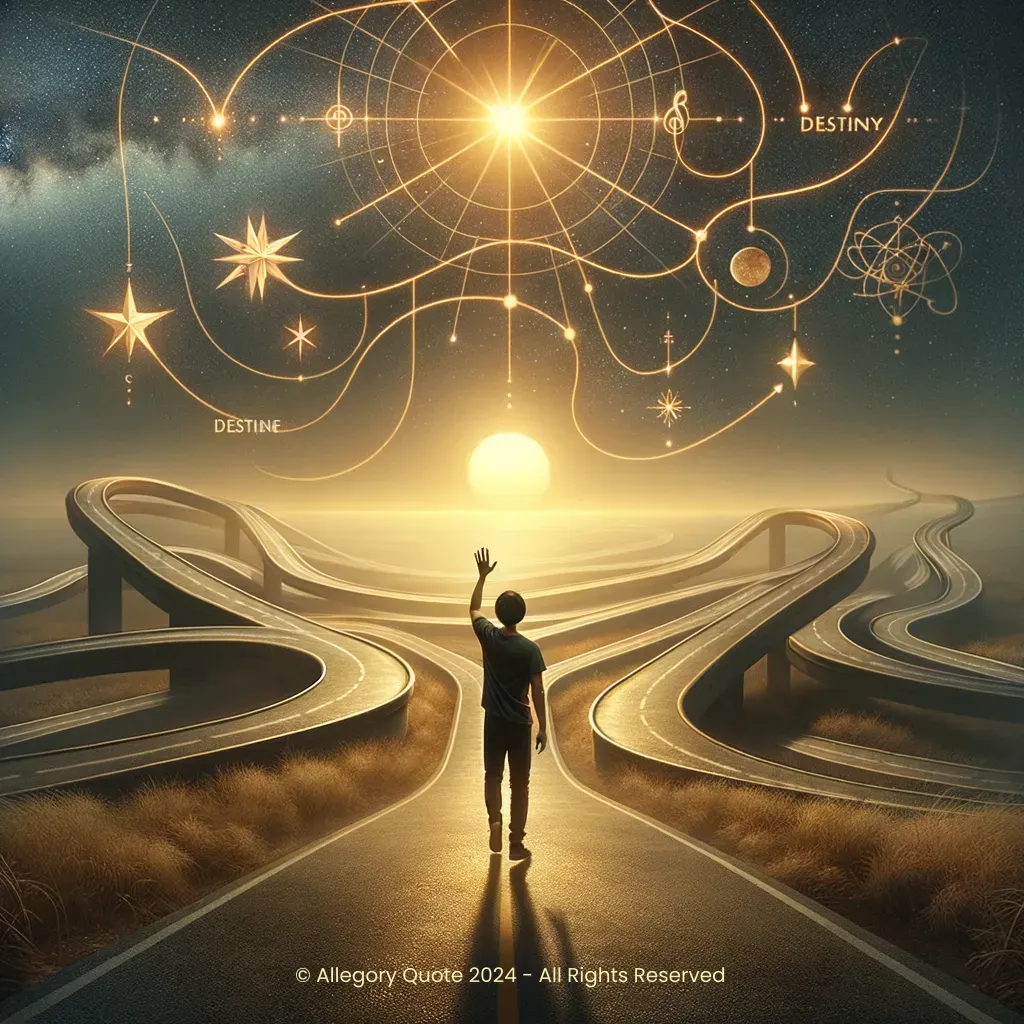
0
0
0
0
- Meaning
- This phrase implies that individuals have the power to influence their own destinies at certain points in their lives. It touches on themes of self-empowerment, decision-making, and the potential for human agency. Despite the seemingly predestined course of events, people can control their reactions and choices to shape their futures.
- Allegory
- The image elements were carefully chosen to reflect the message and values of the phrase. The crossroad signifies the many choices we face in life, while the dawn light represents new opportunities. The sky with stars juxtaposed with the bright sun underscores the dichotomy of destiny and free will. The figure's action towards the sun symbolizes human agency and aspiration. Incorporating elements of ancient Rome connects back to Shakespeare's "Julius Caesar," grounding the timeless nature of the concept within its historical roots.
- Applicability
- In daily life, this phrase can remind us that while external circumstances may be beyond our control, we still possess the agency to make important decisions. It encourages taking responsibility for one's actions and recognizing moments when one can influence their own path. It's a call to seize opportunities and to not passively let life happen.
- Impact
- Shakespeare's works, including this phrase, have had a profound impact on literature, culture, and the arts. This specific quote encourages contemplation of free will versus fate, a theme explored in numerous philosophical, literary, and psychological discussions. It has been cited in both thought-provoking and motivational contexts.
- Historical Context
- "Julius Caesar" was written in 1599 and is set in ancient Rome during the events leading to the assassination of Julius Caesar. The context involves the characters contemplating the power they hold over their own lives and the implications of their actions within a larger historical and political framework.
- Criticisms
- The phrase can be criticized for oversimplifying the complexities of fate and free will, ignoring the systematic and uncontrollable factors that influence people's lives. Some might argue that it places undue pressure on individuals to feel responsible for circumstances beyond their control.
- Variations
- Variations of this phrase and its themes appear across different cultures and philosophies, often expressing the balance between destiny and human agency. In Eastern philosophies like Buddhism, the concept of karma reflects a similar idea that actions have consequences and one can influence their future through present deeds.
-
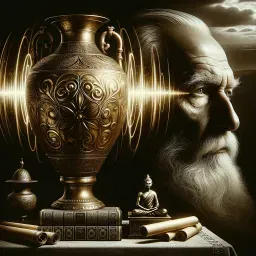
The empty vessel makes the loudest sound.
-
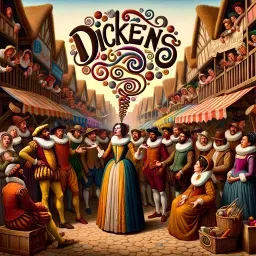
I cannot tell what the dickens his name is.
-
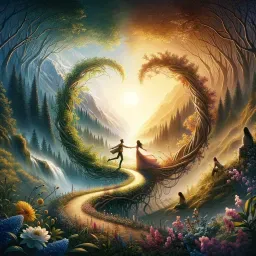
Journeys end in lovers meeting.
-
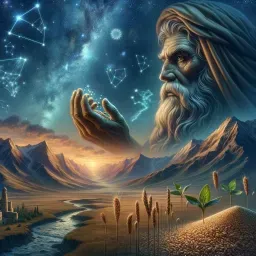
If you can look into the seeds of time, and say which grain will grow and which will not, speak then to me.
-

There is a tide in the affairs of men, which, taken at the flood, leads on to fortune.
-
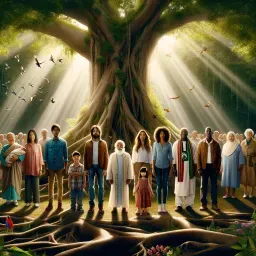
One touch of nature makes the whole world kin.
-
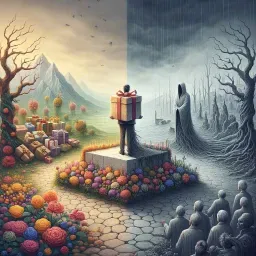
Rich gifts wax poor when givers prove unkind.
-
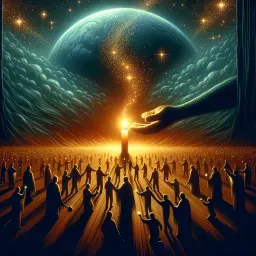
How far that little candle throws his beams! So shines a good deed in a naughty world.
-
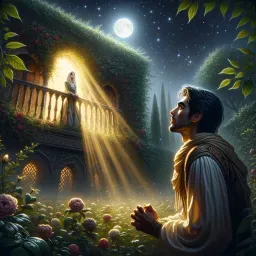
What light through yonder window breaks?
-
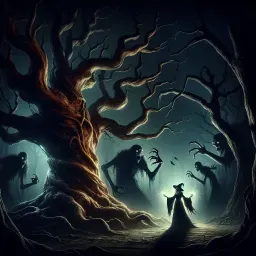
By the pricking of my thumbs, something wicked this way comes.
-
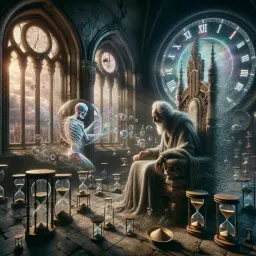
I wasted time, and now doth time waste me.
-

A friend should bear his friend's infirmities, but Brutus makes mine greater than they are.
No Comments